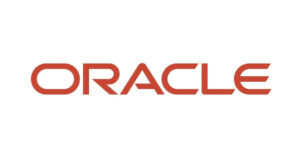
Cryptocurrency wallets have become essential tools for managing digital assets, and Exodus stands out as a leading example. For businesses looking to enter this space, partnering with a professional cryptocurrency wallet development company is critical to creating a secure, user-friendly, and feature-rich solution. This guide breaks down the process of building a wallet like Exodus, covering key features, development steps, cost considerations, and best practices.
Why Exodus? Key Features to Replicate
Exodus’s success stems from its blend of accessibility and advanced functionality. Here are the core features to prioritize:
1. Multi-Chain Support
Exodus supports 50+ blockchains, allowing users to manage Bitcoin, Ethereum, Solana, and niche tokens in one place. To replicate this:
- Integrate APIs like Coinbase, Bitcore, or SimpleSwap.
- Use cross-chain libraries (e.g., BitcoinJ SDK for Bitcoin, Web3.js for Ethereum).
2. Non-Custodial Security
Users retain full control of their private keys. Implement:
- 12-word recovery phrases to restore wallets.
- Biometric authentication (FaceID, TouchID) and encryption.
- Avoid storing keys on servers; use device-specific Secure Enclave chips.
3. Built-In Exchange and Staking
- Integrate real-time price feeds and decentralized exchange (DEX) APIs for in-app swaps .
- Enable staking for proof-of-stake coins (e.g., Solana, Cardano) to let users earn passive income .
4. Web3 and dApp Integration
- Connect to decentralized apps (dApps) and NFT marketplaces via WalletConnect.
- Support Ethereum Virtual Machine (EVM) chains for broader compatibility.
5. User-Centric Design
- Prioritize intuitive navigation, real-time portfolio charts, and price alerts.
- Offer desktop and mobile apps with synchronized data .
Step-by-Step Development Process
1. Planning and Research
- Define wallet type: Choose between hot (online) or cold (offline) storage, custodial vs. non-custodial.
- Select blockchains: Start with Bitcoin and Ethereum, then expand to Solana, Polygon, etc.
- Analyze competitors: Study Coinbase Wallet, Trust Wallet, and MetaMask to identify gaps.
2. Design the Architecture
- Backend: Use Node.js for scalability and AWS for cloud hosting.
- Frontend: Opt for React Native for cross-platform mobile apps.
- APIs: Integrate blockchain nodes (e.g., Alchemy, Infura) for transaction broadcasting.
3. Develop Core Features
- Key generation: Use libraries like HD Wallet-derive to create hierarchical deterministic wallets.
- Transaction signing: Implement ECDSA (Elliptic Curve Digital Signature Algorithm) for Bitcoin or Ethereum’s keccak-256 hashing.
- Security layers: Add 2FA, anti-phishing prompts, and SSL encryption.
4. Testing and Deployment
- Functional testing: Verify send/receive transactions, swap accuracy, and backup flows.
- Security audits: Hire third-party firms to check for vulnerabilities.
- Launch: Deploy on app stores and provide 24/7 support for user issues .
Technology Stack

Cost and Timeline

Costs vary based on team location, complexity, and APIs used
Challenges and Solutions
- Security Risks
- Problem: Hot wallets are prone to hacking.
- Solution: Use hardware security modules (HSMs) and regular penetration testing.
2. Regulatory Compliance
- Problem: Varying laws across regions (e.g., GDPR, MiCA).
- Solution: Implement KYC/AML checks and geoblocking .
3. Cross-Chain Complexity
- Problem: Managing multiple blockchain protocols.
- Solution: Use middleware like Chainlink for interoperability.
Case Study: Shido Wallet
Shido Wallet, developed by Antier Solutions, showcases best practices:
- Tech Stack: React Native, Node.js, AWS .
- Results: 1T+ downloads, 4.9/5 rating on Play Store .
- Key Takeaway: Continuous updates and user feedback loops drive retention.
Why Partner with a Development Company?
Building a wallet like Exodus requires expertise in blockchain, UI/UX design, and cybersecurity. A specialized cryptocurrency wallet development company like Codezeros offers:
- Proven experience in multi-chain integration.
- Compliance with global regulations.
- Post-launch support and maintenance.
Ready to start your project?
Contact Codezeros for a free consultation on building a secure, scalable crypto wallet tailored to your business needs.
How to Build a Cryptocurrency Wallet Like Exodus: A Comprehensive Guide for Businesses was originally published in Coinmonks on Medium, where people are continuing the conversation by highlighting and responding to this story.








